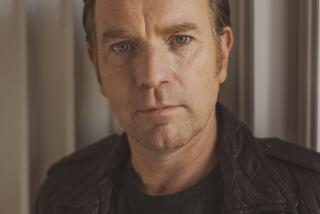When Things Get Hairy in the Kremlin
- Share via
Everywhere we turn, there are predictions, prophesies, assertions: What is going to happen in Russia? Who will be the next president? Will democracy continue? Can capitalism survive?
Predictions are a dangerous business, especially in a country like Russia where even the past can bite you. Maybe it’s better to ignore all the analysts and listen to a witness. I’m told that several years ago, the White House barber published his memoirs. The idea intrigued me: What if a Kremlin barber, now pensioned off, told of his years trimming hair for the party elite? What would he say?
Lenin was my first client. I was young and inexperienced then, and so was he--balding, a devoted revolutionary. He liked to talk to me about world socialism, the equality of the people, and he promised that once the revolution came, he and I would sit at the same table. He seemed gentle and soft-spoken, insisting that the unification of people should happen out of conviction, not just out of violence.
He was not very difficult at first--a simple trim around the bald spot’s edges and my job was done. But as the revolution gathered speed, it became less simple--Lenin grew a beard. No coincidence that Russian monarchs, Orthodox patriarchs, Hasidic mentors, even Karl Marx had lots of hair. Hair brings respect and obedience, suggests the weightiness of wisdom and the priesthood. Lenin’s beard was small, neat, unaggressive, but it was still a beard, designed to make up for his baldness, to confirm the strength of his leadership.
Stalin? Ah, there the adjustment was difficult. First he didn’t want me at all, but then he was so preoccupied with the purges and the war that he forgot all about the man with the scissors near his throat. He remembered just when he urgently needed a good haircut for his only trip abroad, to meet with Winston Churchill and Harry Truman in Potsdam in 1945. But he hated to be touched, and I had to be very careful not to push my luck. Millions had already vanished, and I didn’t want to be one of them.
Working with Nikita Khrushchev was a piece of cake. He used to recount the anecdotes he’d been told about his baldness. I remember one to this day--it was right after his American trip in 1959. Two CIA agents were preparing an assessment of the visit. One asked another, “Have you noticed in which pocket Nikita carried his comb?” The other didn’t know. The next morning, they admitted their failure when writing their report for the agency’s director. The director blew up: “You idiots! Khrushchev has no comb--he’s bald!”
Nikita had a very hearty laugh. Through him, I acquired my political philosophy: Authoritarians are hairy; the more democratic-minded leaders are bald or balding. My only trouble spot was Mao. He was a bald autocrat, but on the other hand, he was Chinese--they have a different concept of hair, I told myself. Besides, Fidel Castro, whose beard grew longer the more power he acquired and the more capricious he became, was proving my theory beautifully in the Western world.
Serving Leonid Brezhnev was a lot of work. His bushy brows needed special care, and we had to meet every week to keep his looks fresh. He didn’t like anecdotes, but rather wanted to know what great things were said about him, preferably by women. He kept the same haircut though years as a signature of his own stability--a stagnant style for the man who initiated the era of stagnation.
Mikhail Gorbachev was a good man, like all other balding democrats; although he didn’t need me, he let me stay in the Kremlin. After meetings with Ronald Reagan, Margaret Thatcher and George Bush, he liked to meet with me to explain why socialism needed reforms--and what it would mean to end the Cold War.
When Boris Yeltsin stood on that tank in 1991, announcing Russia’s road to democracy, I knew right away, “Too hairy: An autocrat. There will be no democracy.” But I didn’t say anything then, afraid to go against the majority consensus. But the shootings in parliament in 1993, the Chechen war of 1994, the abrupt governmental shufflings proved me right.
As for who will be Russia’s next president, as far as I am concerned, it should be a bald guy. Among all the candidates, there is only one now suitable for the post, Moscow Mayor Yuri Luzhkov. His opponents label him a nondemocrat, but what is democracy in Russia, anyway?
If Luzhkov is elected in 2000, my theory will be completely proved and I will be able to retire in peace. The Kremlin then may not need a barber at all. Perhaps Russia will develop such strong liberal tendencies that there will no longer be any hair to cut. Democracy is clearly bald, at least in this part of the world.
More to Read
Sign up for Essential California
The most important California stories and recommendations in your inbox every morning.
You may occasionally receive promotional content from the Los Angeles Times.













